Frances Hodgson Burnett The Secret Garden
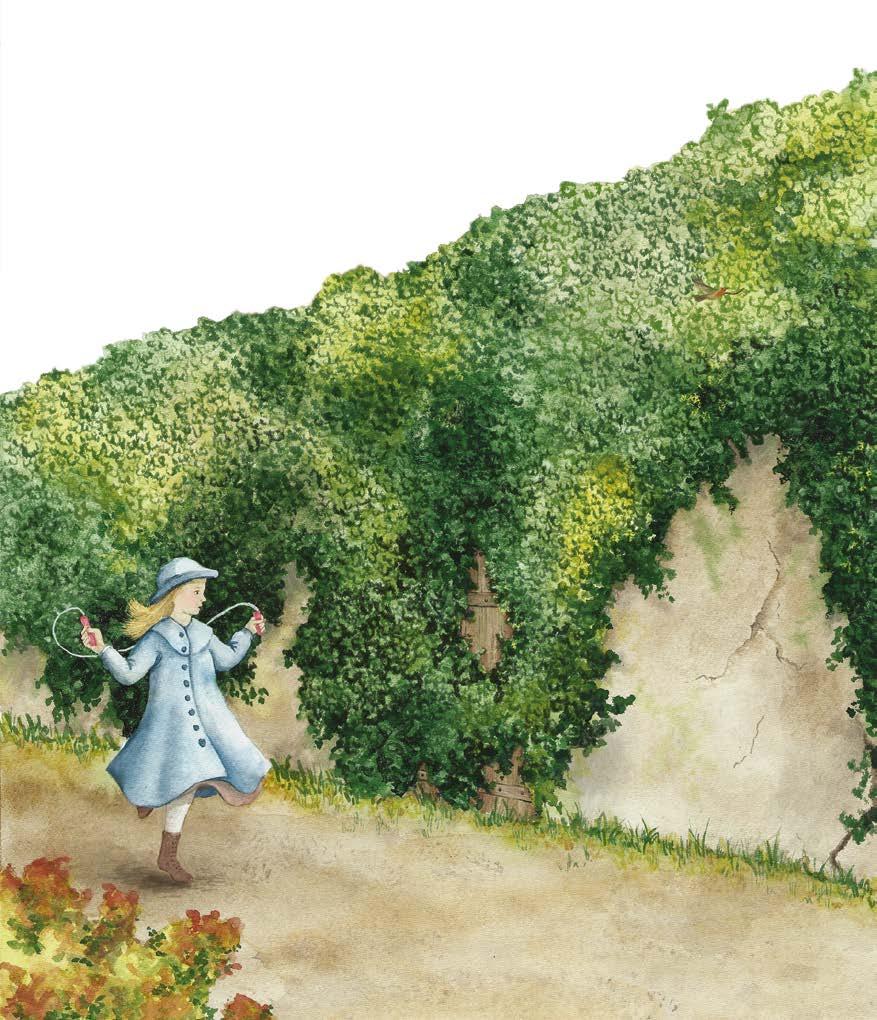
The Pleasure of Reading
eliGreenwich STAGE 2 B1.1 PREPARING FOR PRELIMINARY FLIP BOOK + AUDIO MP3
The Greenwich Meridian is the imaginary line that is exactly at 0° longitude: every place on Earth is measured from this line, known as the Prime Meridian. Here, east and west meet.
Just as the Greenwich Meridian is the meeting place between space and time, the eliGreenwich series is the meeting place of all those readers who immerse themselves in different times and spaces in these pages, discovering characters, stories, and real or imaginary worlds. It is a journey that crosses civilizations, seas, and known or unexplored lands, on its ideal route from the North Pole to the South Pole. A journey that is an adventure: the adventure of reading, of losing yourself in the pages of a book.
www.eligreenwich.it

Welcome to The Secret Garden
Information about the author, the story and the historical period.
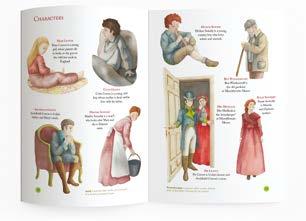
Brief descriptions of the main characters.
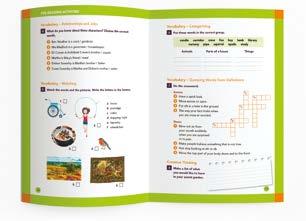
Pre-reading activities.
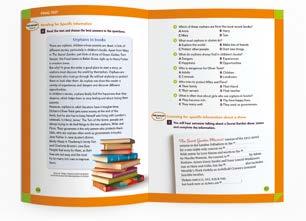
A final test to check what you remember.
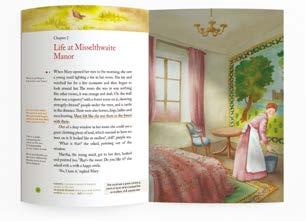
The text with cultural details, brief summaries and glossary.

A wide variety of activities covering Cambridge Exam Certificates, State exams, 21st Century Skills and 2030 Agenda topics.
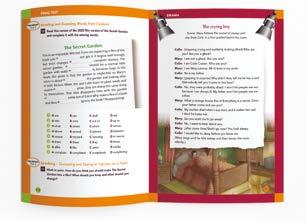
A transcript of one of the most important scenes from the story to act out together in class.
Legenda
PRELIMINARY
INVALSI
Esame di Stato
Costituzione e Cittadinanza
21st Century Skills Agenda 2030
Sir Arthur Conan Doyle The Sign of the Four
Glossario Drama
E. Gaskell, K. Chopin, K. Mansfield, V. Woolf, E.Wharton Portraits of Women
Robert Louis Stevenson The Strange Case of Dr Jekyll and Mr Hyde
Geoffrey Chaucer The Canterbury Tales
Jane Austen Pride and Prejudice
Lewis Carroll Alice in Wonderland
Oscar Wilde The Canterville Ghost
H.G. Wells, G. Orwell, E.A. Poe, S.O. Jewett, V. Woolf One Planet, One Goal
Mary Shelley Frankenstein
George Orwell Animal Farm
K. Mansfield, J. Joyce, O. Wilde, R. Tagore, M. Twain Tales of Friendship
Charlotte Brontë Jane Eyre
Oscar Wilde The Picture of Dorian Gray
H.G. Wells The Time Machine
C. Dickens, E. Wharton, E.M. Forster, W. Sibert Cather, J. London Life is a Journey
Frances Hodgson Burnett The Secret Garden
William Shakespeare Romeo and Juliet
Series Editors Paola Accattoli, Grazia Ancillani
Art Director Daniele Garbuglia
Graphic Design Emilia Coari
Production Manager Francesco Capitano
Photo Credits Shutterstock, Alamy © 2024 ELi, Gruppo editoriale ELi
Printed in Italy by Tecnostampa - Pigini Group Printing Division, Loreto-Trevi 24.83.261.0 ENG017.01
ISBN 978-88-536-4372-8 www.gruppoeli.it
6 Dossier 1 Frances Hodgson Burnett: Life and Work 10 Characters 12 Pre-reading Activities 16 Chapter 1 From India to England 22 Activities 26 Chapter 2 Life at Misselthwaite Manor 32 Activities 36 Chapter 3 The Key to the Door 42 Activities 46 Dossier 2 The Edwardian Period 50 Chapter 4 Dickon and the Secret Garden 56 Activities 60 Chapter 5 Archibald and Colin Craven 66 Activities 70 Chapter 6 Colin, Dickon and the Garden 76 Activities 80 Dossier 3 The Secret Garden on Screen 84 Chapter 7 Colin has an Adventure 90 Activities 94 Chapter 8 A New Start 100 Activities 104 Final Test 111 Drama 112 My Book Contents
Frances Hodgson Burnett: Life and Work

Quick facts
Name: Frances Hodgson Burnett
Born: in Manchester, England on November 24th, 1849
Died: in New York, the USA on October 29th,1924
Education: very little, but she developed a love of reading from her grandmother
Key works: Little Lord Fauntleroy (1886), The Secret Garden (1911)

As long as you have a garden you have a future and as long as you have a future you are alive.





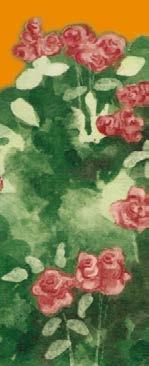


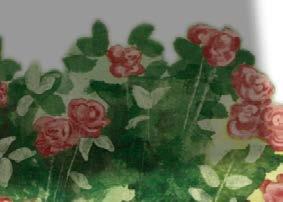








Dossier













Everything's a story - You are a story - I am a story.

Early life


Frances Hodgson Burnett was the middle of five children, two older brothers and two younger sisters, born to Eliza Boond and Edwin Hodgson. Her father owned an iron foundry*, which her mother continued after his sudden death in 1853.
When the business failed, Eliza Hodgson had to sell everything and move several times, before finally taking the family to live with her brother in Tennessee in the United States. Unfortunately he also lost a lot of money, so couldn’t continue helping his sister’s family.

iron foundry a place where they turn metal into different shapes
After the Industrial Revolution (1760 -1840), Manchester was the centre of the world’s cotton industry. This changed as it became impossible to buy cotton from the southern states during the American Civil War (1861-1864).
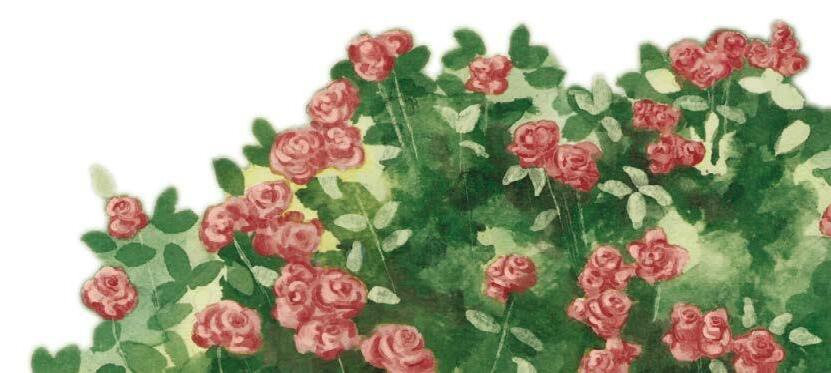













Women's magazines published in the USA, the only one still going today is Harper's Bazaar.
Writing career






Always keen on reading and writing, Frances began selling her own stories to different magazines to earn money for her family. Godey’s Lady’s Book published* her first short story in 1868. Soon after, she started writing for other magazines, including Scribner’s Monthly, Peterson’s Ladies’ Magazine and Harper’s Bazaar. By 1869 she earned enough to move the family into a much better home. After her mother’s death in 1870, she continued to look after her brothers and sisters until they married.






Personal life
She married Swan Burnett, a doctor, in September 1873. They had two children, Lionel, and Vivian. Lionel sadly became ill and died when he was only a teenager. The boys gave her the idea for some of her early children’s stories. Frances often travelled between the US and England, as
Little Lord Faulteroy’s long curly hair and clothes copied the way she allowed her boys to dress and look.
8
publish print and sell copies of sth
Nothing in the world is so strong as a kind heart.
well as to other parts of Europe. Eventually she kept two homes, one in Washington D. C. and one in London. In 1898, Frances divorced Swan and moved back to England, where she lived for the next ten years. In 1900, she married Stephen Townsend, an actor much younger than herself. The marriage was very unhappy and ended two years later.
Hang in there. It is astonishing how short a time it can take for very wonderful things to happen.

Later years and works
Her later books include Sara Crewe (1888), dramatised* as The Little Princess (1905), and The Secret Garden; both were also written for children. People consider The Lady of Quality (1896) the best of her historical novels. Most of her books have very romantic themes*. In 1893 she published an autobiography*, The One I Knew Best of All. From the middle of the 1890s Frances lived mostly in England, but built a house in Long Island, New York, in 1909. She died there of a heart attack aged 74. She published fifty-two books and thirteen plays. She made and spent a lot of money in her lifetime. She was very generous, yet always worried about money, so she never stopped working hard.












dramatise make into a play or a film theme the subject or the ideas in a piece of writing autobiography a book that you write about your own life


9
MARY LENNOX
Mary Lennox is a young girl, whose parents die in India, so she goes to live with her uncle in England.
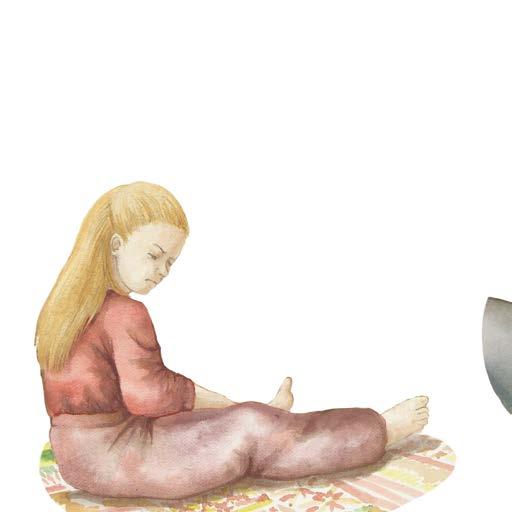

Colin Craven is a young, sick boy, whose mother is dead and he lives with his father.
ARCHIBALD CRAVEN
Archibald Craven is Colin’s father and Mary’s uncle.
MARTHA SOWERBY
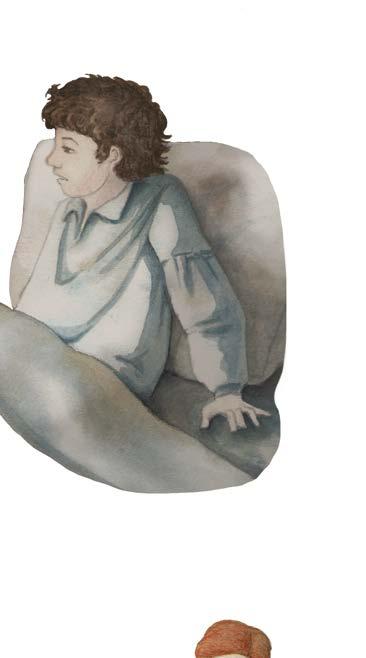
Martha Sowerby is a maid*, who looks after Mary and she is Dickon’s sister.



maid a woman who works as a servant in a hotel or private house
 COLIN CRAVEN
COLIN CRAVEN
Characters
DICKON SOWEBY
Dickon Soweby is a young, country boy who loves nature and animals.
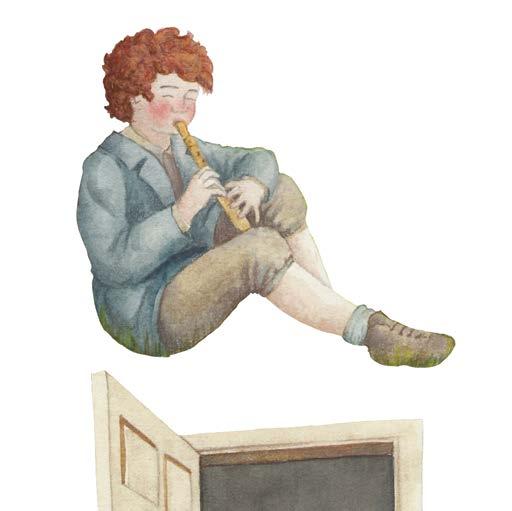
BEN WEATHERSTAFF
Ben Weatherstaff is the old gardener at Misselthwaite Manor.
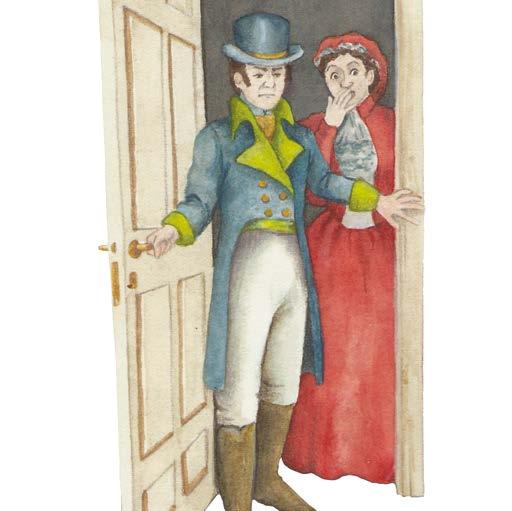
DR
MRS MEDLOCK
Mrs Medlock is the housekeeper* at Misselthwaite Manor.
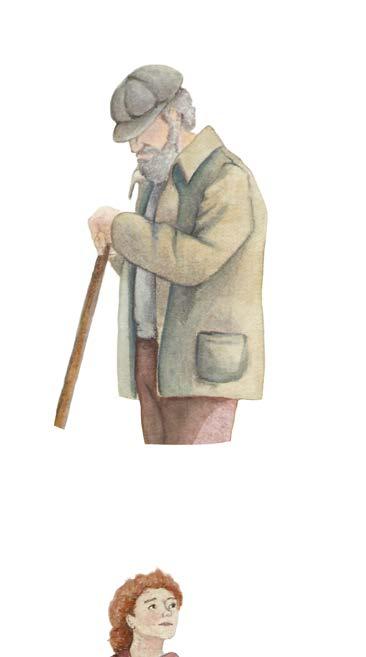
SUSAN SOWERBY
Susan Sowerby is Martha and Dickon’s mother.
CRAVEN

Dr Craven is Colin’s doctor and Archibald Craven’s cousin.
housekeeper a person who cooks, cleans, and looks after a house for its owner
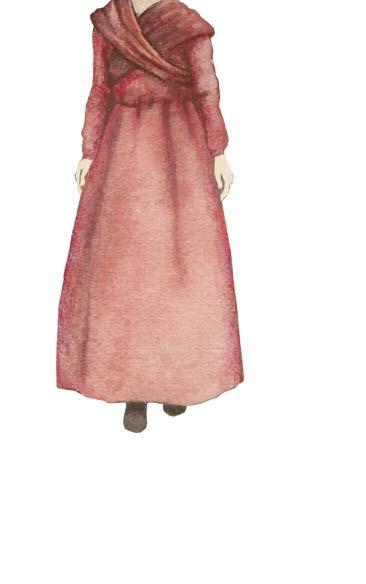


Writing – Predicting
1 What do you know about The Secret Garden?
1 Where do the events of the story happen?
2 Why is it secret?
3 Whose garden is it?
4 What happens there?
5 Who wrote the story and when?
Reading Comprehension – Identifying Characters
2 Complete these sentences with Colin or Mary.
1 was born in India.
2 was born in England.
3 ’s mother was dead.
4 ’s mother and father were dead.
5 was ill.
6 was miserable.
Reading – Gap-Fill
3 Use the words and expressions in the box to help complete the character profiles.
delicate and ill fifteen thirty-five forty-five fresh-faced and smiling ten funny-looking with round eyes good-natured and chatty kind and friendly hair going white and crooked shoulders kind and sensible miserable proud and cross round and pink small and thin ten twelve worried and unhappy
12 PRE-READING ACTIVITIES


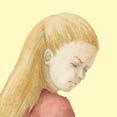

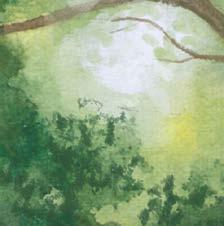
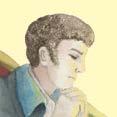




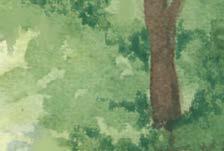






Name: _______________________ Age: about ___________________ Appearance: ________________ _______________________________________ Character: __________________ _______________________________________
Name: _______________________ Age: about Appearance: ________________ _______________________________________ Character: __________________ _______________________________________ 5 Name: Age: about ___________________ Appearance: ________________ _______________________________________ Character: __________________ _______________________________________ 2 Name: _______________________ Age: about ___________________ Appearance: ________________ _______________________________________ Character: __________________ _______________________________________ 4 Name: _______________________ Age: about Appearance: ________________ _______________________________________ Character: __________________ _______________________________________ 6 Name: Age: about ___________________ Appearance: ________________ _______________________________________ Character: __________________ _______________________________________ ten
1
3
Vocabulary – Relationships and Jobs
4 What do you know about these characters? Choose the correct words.
1 Ben Weather is a cook / gardener.
2 Mrs Medlock is a governess / housekeeper.
3 Dr Craven is Archibald Craven’s brother / cousin.
4 Martha is Mary’s friend / maid
5 Dickon Sowerby is Martha’s brother / father.
6 Susan Sowerby is Martha and Dickon’s mother / sister.
Vocabulary – Matching
5 Match the words and the pictures. Write the letters in the boxes.

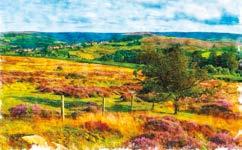
a moor
b porridge
c robin
d skipping rope
e tapestry
f wheelchair
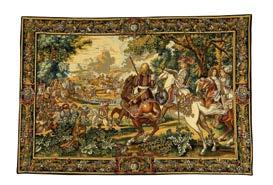
14 PRE-READING ACTIVITIES
2 4 5 6 1 3
Vocabulary – Categorising
6 Put these words in the correct group.
candle corridor crow fox key lamb library nursery pipe squirrel spade study
Animals Parts of a house Things
Vocabulary – Guessing Words from Definitions
7 Do the crossword. Across
2 Have a quick look.
3 Move across or open.
4 Put something in a hole in the ground.
5 The way your face looks when you are cross or worried. Down
1 Blow out air from your mouth suddenly when you are surprised or in pain.
2 Make people believe something that is not true.
3 Not stop looking at something or somebody.
4 Move the top part of your body down and to the front.
Creative Thinking
8 Make a list of what you would like to have in your secret garden.







_____________________ _____________________ _____________________ _____________________ _____________________ _____________________ _____________________ _____________________ _____________________
5 4 3 1 2 G S B P F

Chapter 1
From India to England
2
We have a picture of Mary's family life in India.
We understand the sad and lonely life Mary has as a small child.
An Ayah is a kind of servant who often looked after the children of Europeans working in India. Little girls, born to rich parents, usually had teachers who taught them at home.
Mary’s world suddenly changes when she is nine and the servants are all upset or not there.
3
When Mary Lennox went to live with her uncle, everybody thought she was such a miserable child, and it was true enough. She had a little thin face and body, thin light hair and an unfriendly expression*. Her hair and face were yellow because she was born in India and was always ill. Her father, who worked for the English Government*, was always busy and ill himself. Her mother was very beautiful and only interested in going to parties and having fun. When Mary was born she gave her to an Ayah to look after, telling her to keep her out of her way. All the Indian servants* did everything the ill, ugly, crying little girl wanted, so by six she was very bossy* and selfish. Her first English governess* only stayed for three months as she disliked her so much. When other teachers came, they always went away in an even shorter time. Mary taught herself to read because she really wanted to learn.
One very hot morning when Mary was about nine, she woke feeling very cross. She became even crosser
expression look on your face government a group of people who manage a country servant a person who works in another person’s house maybe as a cleaner or a gardener bossy someone who tells others what to do all the time governess a woman who lives with and teaches children in their home
16
when her Ayah did not come to her. There was some mystery in the air that morning. The servants were missing and everything was strange. But no one told her anything and her Ayah did not come. She was in the garden, playing by herself under a tree, when she saw her mother talking to a young man. She looked just as beautiful as ever, but her eyes were not laughing. She looked very scared.
‘Is it so very bad? Oh, is it?’ Mary heard her say.
‘Terrible,’ answered the young man. ‘Why didn’t you leave here two weeks ago?’
‘Oh, I know! I only stayed to go to that silly dinner party. What a fool I was!’ she replied.
At that moment there was the loud sound of someone crying from the servants’ building. Mrs Lennox caught the young man’s arm, and asked, ‘What is it? What is it?’
‘Someone died,’ answered the officer. ‘You did not say that your servants were ill!’
‘I did not know!’ said Mary’s mother and they ran into the house.
After that worse things happened. Mary’s Ayah died of cholera*, and the other servants either became ill or ran away. Mary was too scared to leave the nursery* and everybody forgot about her. She just slept and cried for hours.
This makes the reader understand the type of person Mrs Lennox is at the same time as she does.
cholera an illness you get from unclean food and water, which can kill nursery a room in a house for young children
Mary begins to understand that people are ill and dying in the house and she feels scared and lonely.
17 Chapter
to England
1 From India
Frances Hodgson Burnett The Secret Garden
Mary only leaves her room to look for food.
The snake‘s eyes are almost like a camera watching her. Saying one thing is like another in this way is called a simile.
After she wakes up, she finds strange men in the house.
The officers who come to the Lennox house talk about Mary and her mother being dead.
Finally, she got so hungry that she went into the dining room, ate some fruit and biscuits and drank some wine. Then she fell asleep again for a long time. When she woke the house was perfectly silent. As she could hear nothing, she thought maybe everybody was well again and the cholera over. But why did nobody come to look for her? Only a little snake moved across the floor, watching her with eyes like jewels. She was not afraid as it was not dangerous. The next minute, she heard some men enter the house, talking in low voices.
No one went to meet or speak to them as they opened doors and looked into rooms.
‘Such a terrible situation!’ she heard one voice say. ‘That pretty, pretty woman! I suppose the child, too. I heard there was a child, though no one ever saw her.’
Mary was sitting in the middle of the nursery when they opened the door a few

A little snake watched her with its eyes like jewels.
minutes later. She looked an ugly, cross little thing and was frowning* because she was beginning to feel hungry and extremely neglected*. The first man who came in was a large officer, who knew her father. He looked tired and worried. When he saw her he was so surprised that he almost jumped back.
‘There is a child here! A child alone! In a place like this! Mercy on us, who is she!’
‘I am Mary Lennox,’ the little girl said, standing up straight. She thought the man was very rude to call her father’s house ‘A place like this!’ ‘I fell asleep when everyone had the cholera and I just woke up. Why does nobody come?’
‘Poor little kid! There is nobody left to come,’ said a younger officer.
It was in that strange way that Mary suddenly found out that her parents were dead. Everybody died or ran away, and nobody remembered about her. It was true that there was no one in the house but herself and the little snake.
Mary travelled to England by boat with an officer’s wife and her children. Mrs Medlock, the housekeeper at Misselthwaite Manor, met her in London.
She was a big woman, with very red cheeks and sharp* black eyes. She wore a very purple dress, a black
frown the way your face looks when you are cross or worried neglected when people forget or don’t think about you sharp quick and clever
This is an expression to ask God to save them.
The officers and Mary realise at the same time that she is all alone in the world.
The writer shows how little emotion Mary feels losing her parents.
Mrs Medlock meets Mary in London to bring her back to her uncle’s house.
Misselthwaite Manor is the name of the most important big house in the area.
19
Chapter 1 From India to England
This tells us a lot about Mary’s character.
This is an old-fashioned expression of surprise.
Mary doesn’t want to show interest in her new home, but she wants to know about it.
This is the beginning of Mary’s new life in Yorkshire.
There was so little light, that it made Mary afraid of the pictures on the wall.
cloak* and a hat with purple flowers on it. Mary did not like her at all, but she often didn’t like people. Besides, it was obvious that Mrs Medlock did not think much of her.
‘My word! She’s a plain little thing. We heard that her mother was a beauty.’
‘Perhaps she will improve as she grows older,’ the officer’s wife said kindly.
They didn’t think Mary was listening, but she heard and felt sadder and lonelier.
The next day they started their long journey to Yorkshire. Mrs Medlock, tired of watching the miserable child, began to tell her about her new home. Mary listened despite herself.
At Thwaite Station there was a smart carriage* waiting for them. Mary sat and looked out of the window at Missel Moor*, although it was too dark to see it clearly.
Finally, the horses stopped by a very long, but low house. The huge wooden front door opened into an enormous hall, with so little light that it made Mary afraid of the pictures on the wall.
Mr Pitcher, a thin old servant, said, ‘Take her to her room. Mr Craven doesn’t want to see her now.’
cloak a big coat without arms carriage an old-fashioned way of travelling, pulled by horses moor an open area of grass, usually high up
20 Frances Hodgson Burnett The Secret Garden

Reading and Matching Events and Places
1 Match the events with the places in the story.
e A carriage is waiting for Mrs Medlock and Mary at
1 Mary arrives in the night at
2 Mary rides across
3 Mrs Medlock meets Mary in
4 Mary was born in
a India
b London
c Misselthwaite Manor
d Missel Moor
e Thwaite Station 2
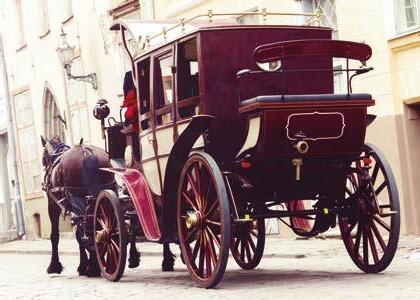
Listening and Deciding True or False
2 Listen to the audio of page 16 and write T (true) or F (false). Correct the false ones.
Everybody thought Mary Lennox was a miserable child.
1 She had a fat little face and body.
2 She was born in India.
3 Her father worked for the Indian Government.
4 Her mother was very beautiful and only interested in having fun.
5 When Mary was born she gave her to an Ayah to look after.
6 The Indian servants did nothing for the little girl.
7 Her first English governess loved her.
8 Mary taught herself to read.
22 CHECK IT OUT
T F
✔
Gap fill – Intensifiers
1 Complete the sentence with enough, so, such, too or very. Everybody thought she was a miserable child.
1 It was true .
2 Her first English governess only stayed for three months as she disliked her much.
3 By six she was bossy and selfish.
4 Mary was scared to leave the nursery and everybody forgot about her.
5 She got hungry that she went into the dining room, ate some fruit and biscuits and drunk some wine.
6 ‘ a terrible situation!’ she heard one voice say.
7 When he saw her he was surprised that he almost jumped back.
8 She thought the man was rude to call her father’s house ‘A place like this!’
Vocabulary – Comparative and Superlative Adjectives
crosser such
2 Complete the sentences with the correct form of the adjectives. She became even when her Ayah did not come to her. (cross)
1 She looked just as as ever, but her eyes were not laughing. (beautiful)
2 After that things happened. The other servants either became ill or ran away. (bad)
3 ‘Perhaps she will improve as she grows ,’ the officer’s wife said kindly. (old)
4 They didn’t think Mary was listening, but she heard and felt and . (sad, lonely)
23 DEVELOPING CRITICAL THINKING SPOT ON GRAMMAR
Comparing Two Pictures
Work in pairs. Use the questions to talk about the two pictures from chapter 1.
1 Who can you see in the picture?
2 Where is the picture set?
3 What is similar about the two pictures?
4 What is different about them?
5 How do the people in the pictures feel?
6 Why do they feel like that?
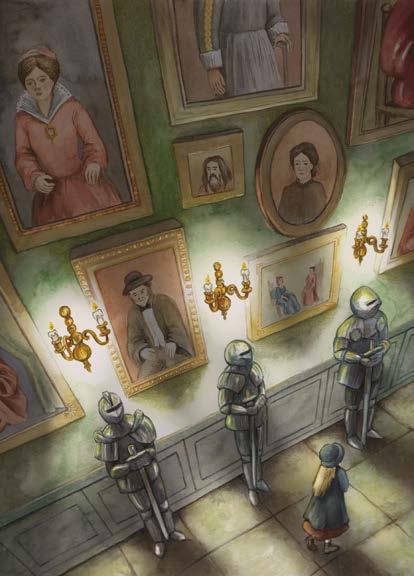



24 FOCUS ON YOUR EXAMS
PRELIMINARY A B


The 2030 Agenda Goal 3:
Good health and well-being

1 Mary’s parents and many of the servants in her house die from Cholera. What do you know about this illness?
2 Check your answers and discuss the information about Cholera.



• You catch cholera from bacteria in food or water.
• It affects your stomach and it can kill you without the right medicine.
• Every year about 4 million people in the world suffer from cholera and 143,00 people die (WHO).
• There is still cholera in 22 countries in the world because of dirty food and drink.
• You need clean water and good sanitation to stop cholera.
3 How do you think it is possible to meet Goal 3: Good health and well-being, especially considering our recent experiences with the COVID-19 pandemic? Discuss your ideas in small groups.
A global strategy on cholera control,


Ending Cholera: a global roadmap to 2030, with a target to reduce cholera deaths by 90% was launched in 2017.



THINK ON!
Comprehension and Summarising Events
1 Put the pictures from the story in order [1-6] and then write a caption for each one.
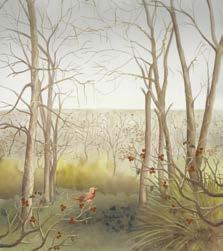
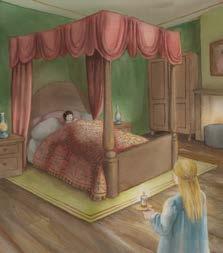

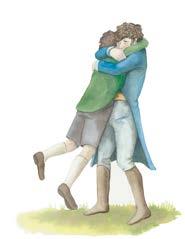
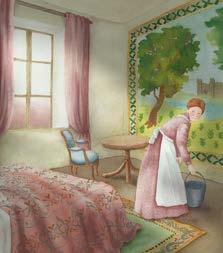
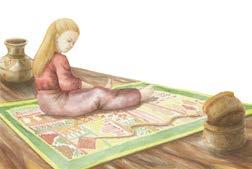
104 FINAL TEST
A _______________________ C _______________________ E _______________________ B _______________________ D _______________________ F _______________________
Vocabulary – Opposite Adjectives
2 Write the opposite adjectives from the text.
Vocabulary – Opposite Adjectives
3 Now write sentences about things and people in the story using the adjectives you added in activity 2.






105
crooked1 delicate2 good-natured3 pretty4 polite5 bare6 dull7 broken-hearted -
straight
Reading for Specific Information
4 Read the text and choose the best answers to the questions.
Orphans in books
There are orphans, children whose parents are dead, in lots of different stories, particularly in children’s books. Apart from Mary in The Secret Garden, just think of Anne of Green Gables, Tom Sawyer, the Fossil sisters in Ballet Shoes, right up to Harry Potter in modern times.
But why? It gives the writer a good place to start a story, as orphans must discover the world by themselves. Orphans are characters who must go through life without anybody to protect them or look after them. An orphan can show the reader a variety of experiences and dangers and discover different opportunities.
In children’s stories, orphans finally find the happiness that they deserve, which helps them to stop feeling sad about losing their parents.
However, orphans in adult literature have a tougher time. Dicken’s Oliver Twist gets some money at the end of the book, but he also has to keep himself safe living with London's criminals. In Henry James’ The Turn of the Screw, people are always trying to do bad things to the two orphans, Miles and Flora. Their governess is the only person who protects them. Girls, who are orphans often work as governesses in books: Jane Fairfax in Jane Austen’s ; Becky Sharp in Thackeray’s Vanity Fair and Charlotte Bronte’s Jane Eyre










People feel sorry for them, as their lives are not easy and the must try to marry rich men to improve them.

Jane Fairfax in Jane Austen’s Emma Vanity Fair . k/romantics-






















Source: https://www.bl.uk/romanticsand-victorians/articles/orphans-in-fiction















106 FINAL TEST
PRELIMINARY Part 4
3
1 Which of these orphans are from the most recent books?
A Anne
C Mary
B Harry
D Tom
2 What must orphans in stories do?
A Explore the world.
B Make lots of friends.
C Protect other people. D Start new things.
3 What do orphans always find in children’s books?
A Dangers
C Happiness
B Experiences
D Opportunities
4 Who is dangerous for Oliver Twist?
A Adults
C Criminals
B Children
D Londoners
5 Who tries to protect Miles and Flora?
A Their family
C Their servant
B Their friend
D Their teacher
6 What is often true about girls who are orphans in books?
A They become rich.
C They marry well.
B Thy have happy lives.
D They work as governesses.

Listening for specific information about a show
5 21 You will hear someone talking about a Secret Garden show. Listen and complete the information.
The Secret Garden Musical version of the 1911 novel returns to the London Palladium in the (1) _______________ for a one-night-only concert on (2) _______________ . With music by Lucy Simon and words to the (3) _______________ by Marsha Norman, the concert is (4) _______________ by Adam Hoskins. Actors Darcy Jacobs and Isaac Lancel-Watkinson star as Mary and Colin, but the (5) _______________ also includes Westlife’s Mark Feehily as Archibald Craven’s invented horrible brother. Tickets cost £15, £25, £35 & £45, but book now as tickets are (6) _______________ !

PRELIMINARY Part
Answering Questions about a Book
6 Work in pairs. Ask and answer these questions.
• What kind of books do you like reading?
• When do you usually read?
• Did you enjoy the book The Secret Garden? Why? / Why not?
• Who was your favourite character?
• What was your favourite scene?
• What did you learn about the writer?
• Would you like to read other books by the writer?
• What did you think about the time when the book is set?
Listening for Overall Understanding
7
22 Listen to an interview with a professor about The Secret Garden. Tick [✔] the correct answer for each question.
1 The professor thinks The Secret Garden is A about our relationship with nature.
B an important 20th century children’s book.
C too simple and not exciting enough.
2 What does the book tell us about the British Empire in India?
A The British behaved well.
B The British had too much power.
C The British were kind and polite.
3 The buried key makes us think of Colin’s A father’s disappearance. B own illness.
C mother’s death.
4 Where did J.M. Barrie’s Peter Pan explore?
A Chelsea Gardens. B Kensington Gardens.
C Kew Gardens.
5 Which Greek god is Dickon like in the professor’s opinion?
A Eros B Gaia C Pan
6 The author is giving her opinion about the Edwardians view of A being ill. B feeling lonely.
C losing someone.
108 FINAL TEST PRELIMINARY Part 1 PRELIMINARY Part 1
Writing a Letter about the Book
8 This is part of a letter you receive from your English penfriend. Read the letter and write a reply answering the questions in about 100 words.

I have to give a presentation to my English class about The Secret Garden . I know you just read the book. Can you help me? What information should I include?

9 Read the text. What does it say? Choose the correct answer A-C.
1 This garden is closed to visitors. Please do not enter without asking the owners first.
A The owners always allow visitors to enter the garden.
B The owners never allow visitors to enter the garden.
C The owners sometimes allow visitors to enter the garden.
2 Little British girl left alone in house in India as family and servants die of Cholera.
A Everyone died apart from the little girl.
B Everyone left the house to protect the little girl.
C Everyone wanted the little girl to die.
3 Colinmustnotgooutsideformorethan30minutes todayasheisnotwellenough. DrCraven
A The doctor thinks that a little bit of time spent outside will do Colin good.
B The doctor thinks that Colin is too ill to spend a lot of time outside.
C The doctor thinks that Colin shouldn’t spend even a short time outside.
109 PRELIMINARY Part 3 PRELIMINARY Part 1 Reading and Understanding Messages
Reading and Guessing Words from Context

Read this review of the 2020 film version of The Secret Garden and complete it with the missing words.


The Secret Garden
This is an enjoyable film but if you are expecting a film of the book you (1) _________________ not get it. It begins well enough, but then changes (2) _________________ complete fantasy. The secret garden, (3) _________________ should be a normal little garden with walls (4) _________________ it, becomes huge. In the book, the point is that the garden is neglected, so Mary's story is about (5) _________________ the garden and looking after it with Dickon. When she and Colin learn to plant seeds and watch (6) _________________ grow, they are doing the same thing to themselves. That idea disappears here with the garden (7) _________________ some sort of Eden! Why make a film of a book and then (8) _________________ ignore the book? Disappointing!
1 A are B can C shall D will
2 A into B onto C out of D up to
3 A what B where C which D whose
4 A above B around C behind D between
5 A rescue B rescued C rescuing D to rescue
6 A them B these C they D those
7 A alike B like C same D similar
8 A complete B completed C completely D completing
Speaking – Discussing and Giving an Opinion on a Topic
11 Work in pairs. How do you think you should make The Secret Garden into a film? What should you keep and what should you change?
FINAL TEST
PRELIMINARY PRELIMINARY Part
4
110

e crying boy



Scene: Mary follows the sound of crying until she finds Colin in a four-posted bed in his room.


Mary: I am not a ghost. Are you one?
Colin: I am Colin Craven. Who are you?




Colin: [stopping crying and suddenly looking afraid] Who are you? Are you a ghost?




Mary: I am Mary Lennox. Mr Craven is my uncle.
Colin: He is my father.




Mary: [gasping in surprise] Why didn’t they tell me he has a son! Did nobody tell you I came to live here?

Colin: No, they were probably afraid. I won’t let people see me because I am always ill. My father won’t let people see me either.


Mary: What a strange house this is! Everything is a secret. Does your father come and see you?
Colin: My mother died when I was born and it makes him sad. I think he hates me.




Mary: Do you want me to go away?
Colin: No, I want to hear about you.
Mary: [after some time] Shall I go now? You look sleepy.
Colin: I would like to sleep before you leave me.
[Mary sings until he falls asleep and then leaves the room silently.]
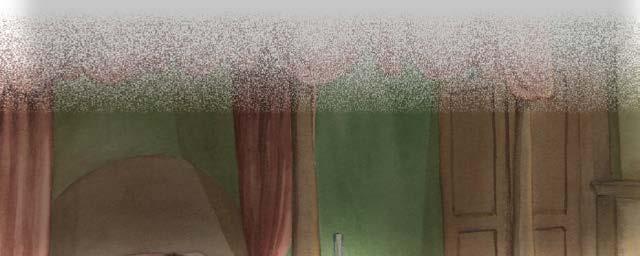

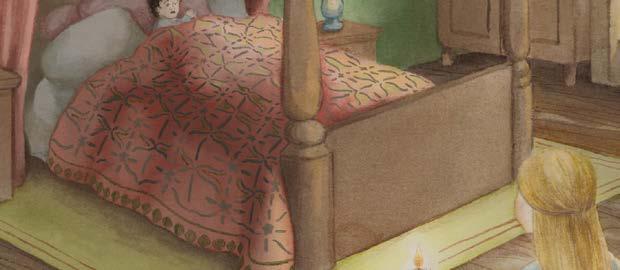




DRAMA
MY BOOK
My favourite character is because ____________________________________________________________________

My favourite scene in the book is when ___________________________________
What I really don’t like about the book is because ____________________________________________________________________
I like/don’t like the story because ____________________________________________
Points to remember about the book are __________________________________
eliGreenwich
STAGE 1 A2 KEY
STAGE 2
STAGE 3
STAGE 4
STAGE 5
B1.1 PREPARING FOR PRELIMINARY
B1.2 PRELIMINARY
B2.1 PREPARING FOR FIRST
B2.2 FIRST
e Secret Garden is the story of Mary Lennox, a ten-year-old girl, whose parents die of cholera in India. She goes to live with her uncle in England, where she nds the secret garden that he locked away many years before when his wife died. Mary’s servant, Martha, has a younger brother called Dickon, who has a natural ability with plants and animals, so he shows her what to do. Mary also discovers that the person crying in the middle of the night at Misselthwaite Manor is her sick cousin, Colin. He and Mary become friends, and the three children explore the garden together and plant seeds to bring it to life. It is a story of friendship, hope and a belief in the power of nature to make people better.
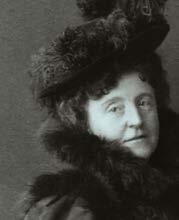


Frances Hodgson Burnett was born in Manchester, England in 1849. Her family moved to the USA in 1867 after her father died suddenly. Always keen on reading and writing, Frances began selling her own stories to di erent American magazines to earn money for her family. She married twice and had two children, one of whom sadly died while still a teenager. In total, she published fty-two books and thirteen plays, making and spending a lot of money during her life in the US and the UK. She died in New York, aged 74.
AUDIO MP3
WITH SMARTPHONE OR TABLET
• Download the app
• Use the ELILINK app
• Scan the cover
WITH PC OR MAC
Download Audio from www.gruppoeli.it
www.eligreenwich.it www.gruppoeli.it
FLIP BOOK
DIGITAL AND INTERACTIVE VERSION OF THE BOOK (LOOK AT THE INSIDE FRONT COVER FLAP)
€ 9,80
ELIs.r.l.THESECRET GARDEN978-88-536-4372-8 Questo volume sprovvisto del talloncino è da considerarsi CAMPIONE GRATUITO fuori campo IVA (Art. 2, c. 3, I.d, DPR 633/1972 e Art. 4, n.6, DPR 627/1978)









































































 COLIN CRAVEN
COLIN CRAVEN



































































































































